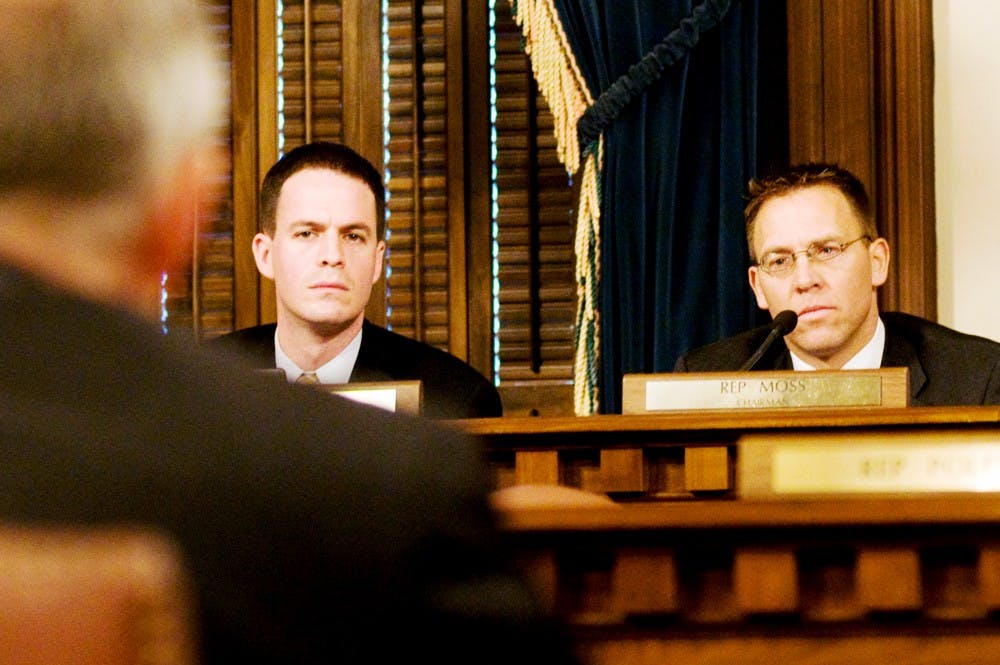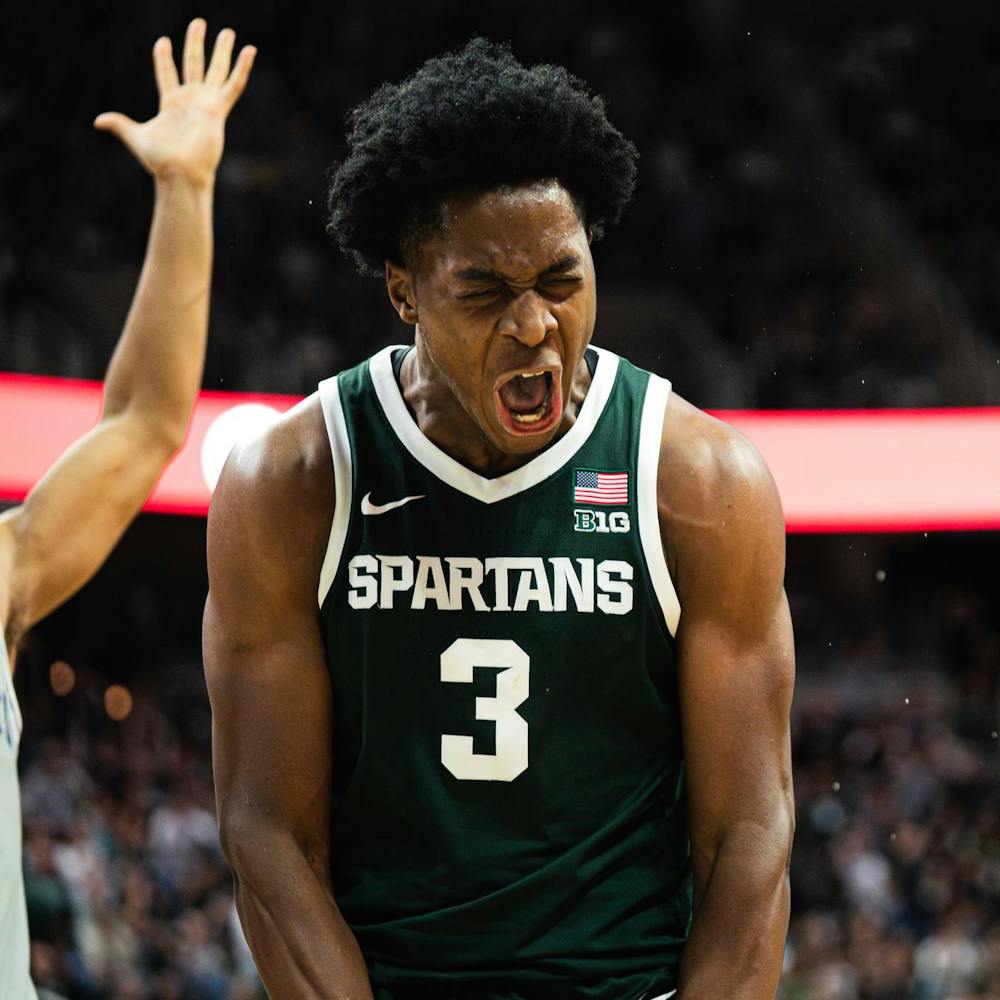MSU officials and state legislators remain at odds in a battle over the university’s new health care mandate after administrators and student leaders defended the policy in a House subcommittee hearing Wednesday morning.
Republicans in the House Appropriations Subcommittee on Higher Education have argued the policy — which mandates students carry health insurance to be enrolled at the university — adds an unnecessary financial barrier to college. The requirement is being phased in with this year’s freshman class, while older students are grandfathered in.
During the hearing Wednesday, MSU administrators and student leaders argued the policy plays a major role in helping to protect students from dropping out when medical bills from an accident rack up and protects public health of the MSU community when students get sick.
“MSU students who are a part of the MSU community have a responsibility to remain healthy,” Provost Kim Wilcox said. “Public health is a concern we take very seriously.”
The issue of public health has been magnified on campus since last Friday when sophomore Carly Glynn, who lived in Snyder Hall, died of what health officials suspect was a bacterial infection.
Victor Draine, ASMSU’s vice chair for governmental affairs, was among a number of undergraduate leaders who backed the administration.
ASMSU is MSU’s undergraduate student government.
Noting he was initially skeptical, Draine said the policy successfully protects students, as they are able to opt out of the university plan and choose a cheaper ASMSU plan.
Other students also spoke favorably of the policy.
“If I didn’t already have health insurance from my parents … I probably wouldn’t have thought about why health insurance was important to me, because I’ve never had any health issues before,” said Julie Nguyen, president of the Student Health Advisory Council, when asked whether the university needs to tell students if they need insurance during Wednesday’s hearing.
But legislators weren’t having it. State Rep. Kevin Cotter, R-Mt. Pleasant, dismissed both student and administration support, arguing the policy is not in the best interest of most students. He said the committee would look for further ways to change the policy — which likely would be without MSU’s consent.
“There are options available that we’ll have to assess … I did not expect we would come away with an agreement today,” Cotter said. “It’s very troubling to me that because some students agree with this very passionately, that they want to push that on the others and support the university in doing that.”
In questions mostly led by Cotter and State Rep. Bob Genetski, R-Saugatuck, the committee pitched questions at administrators about the policy’s fine details — everything from the financial impact of continuing three free visits to Olin Health Center for students each academic year, to whether or not the university’s plan would cover abortions.
Representatives also pressed on an aspect of the policy that does not require documentation of an outside health plan, to which administrators responded they wanted to maintain a level of trust with students.
There are about 700 students who are on the new policy, but more could be added in coming weeks as administrators sort through students who have not yet responded, Senior Associate Provost June Youatt said.
“While it may be powerful rhetoric to describe this as a new imposition on 48,000 students, the truth is quite different,” Wilcox said, pointing to the fact that graduate and international students have long been required to have health insurance. “For many students, this being a requirement or this being a recommendation is between having or not having health insurance.”
Support student media!
Please consider donating to The State News and help fund the future of journalism.
Discussion
Share and discuss “MSU health care controversy continues” on social media.





